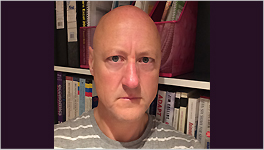
We live in an age of explicit rules and guidelines; of aims and objectives; of benchmarks and performance indicators, standardized tests and league-tables. Systematization abounds in the criteria specifying good practice and the delivery of public services; in the charters that outline rights and responsibilities in both civic society and in society’s microcosms. A university’s once unspecified expectation that its students will attend lectures and prepare work is often now formalised in contracts, and in return students are informed of the explicit ‘outcomes’ of their ‘learning activities’. Such reforms aim to replace a tacit or implicit understanding of practices with something explicit and codified. They are expressions of what Max Weber calls "intellectualisation": the sentiment that one can "in principle, master all things by calculation". In The Craftsman Richard Sennett identifies as longstanding this suspicion of merely implicitly understood standards, and emphasizes how a “Platonic” suspicion of ‘embedded’ knowledge expresses itself in the move to obviate dependence on the skilful judgements of individuals by formalising the knowledge and making explicit the rules that experts purportedly employ in making them. But the question this raises is the following: Can tacit or implicit forms of judgment or of understanding be ‘cleansed’ of subjective factors and rendered objective only insofar as they are codifiable in a principle or set of principles? Or is there a form of knowledge or judgement which is not codifiable (cannot be “put into words”) but which is still genuinely answerable to features of the world? What seems to be required here is the concept of a form of knowing that is not as Weber would say “calculable”, but which answers nevertheless to a genuine standard of correctness. Let’s call this “tacit knowledge”.
Tacit Knowledge; or, Do we Know more than we can Tell?
Dr Neil Gascoigne, University of London
Prof. Dr. Claus Beisbart, University of Bern, Response
Datum: 30.05.2013
Zeit: 18:15 - 19:45 Uhr
Ort: Universität Bern, UniS, Schanzeneckstrasse 1, Raum A301
Neil Gascoigne
Neil Gascoigne trained as an Engineer and retrained as a Kremlinologist before taking his MA (surrealism and psychoanalysis) and PhD (naturalism and transcendental philosophy) in the Department of History and Philosophy of Science at Cambridge University. His research interests are historical-conceptual in nature and include metaphilosophy, pragmatism and scepticism. His publications include the books Scepticism (2003), Richard Rorty: Liberalism, Irony and the Ends of Philosophy (2008) and (with Tim Thornton) Tacit Knowledge (2013). He is currently guest editor of an issue of the journal Humanities on the ‘Legacy of Richard Rorty’ and is working on a book on scepticism. He has been head of philosophy at Royal Holloway, University of London since 2008.
Claus Beisbart
Claus Beisbart is Professor of Philosophy of Science at the University of Bern.